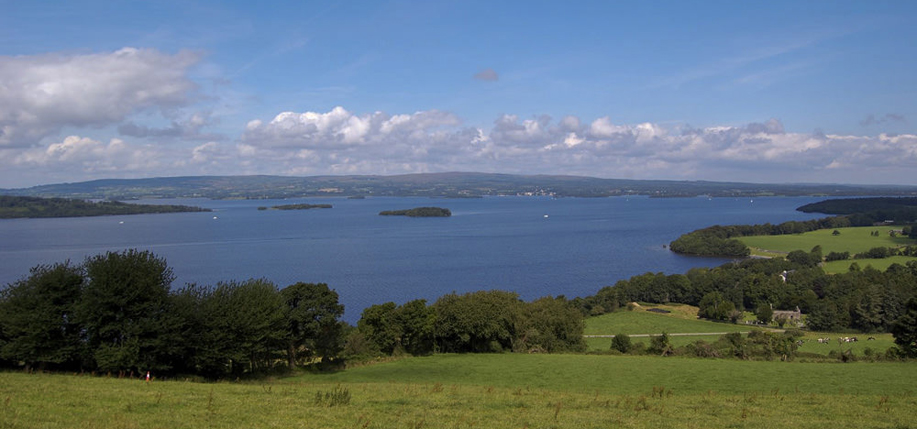When I was a kid my father would take us for drives to County Clare, or as he called it, “Biddy Early country.” We’d drive the back road, so narrow that the trees on either side reached across to each other, pass through the tiny village of Portroe, and stop at the top of a hill at a place called the Lookout to take in the view across Lough Derg to County Clare on the far shore. It was really something to see from so high up. The Shane MacGowan song, “The Broad Majestic Shannon” comes to mind as I write this, and I’m struck with a pang of something akin to homesickness. (After 40 years in America, our farm in Tipperary is still home.) My fit of nostalgia has been brought on by Rosemary Rogers’s “Wild Irish Women” piece in this magazine.
Appropriate for our annual health issue, Rosemary has chosen County Clare’s own Biddy Early as the subject of her column, thus stirring up memories of my father and half remembered stories of Biddy, who as children we were led to believe was a witch who would cast a spell on you if you didn’t behave. Not true. As Rosemary explains, back in the day, many wise women, healers and herbalists such as Biddy, were branded as witches by the church and local authorities who feared they would conjure up evil spirits.
Fast-forward to today, where the modern pharmaceutical industry is built largely on natural remedies. Indeed, in our cover story, the biologist William “Bill” Campbell, who received the 2015 Nobel Prize in Medicine, advises a return to nature when looking for medical cures, “because nature consistently produces molecules that have not been thought of by humans,” he says.
It was a great pleasure for me to spend time with Dr. Campbell and his lovely wife, Mary, at their summer home in Cape Cod in early August. (It was also great to be out of the city and surrounded by nature). As we talked about his childhood in the wilds of Donegal and his upcoming trip to Ireland in September, mention was made of a visit to W.B. Yeats’s grave in Sligo. One of my favorite poems is “Lake Isle of Innisfree,” and as it turns out it’s also Campbell’s. I offered up the opening line, “I will arise and go now, and go to Innisfree,” and Campbell picks it up: “And a small cabin build there, of clay and wattles made.” He recites the poem from beginning to end. “Yeats wrote the poem when he was a young Irish person living in London, but he clearly wanted to be back in Ireland,” Campbell says, and we talk a little about the nostalgia that as immigrants we feel from time to time. The last stanza of this three-stanza poem in particular touches a chord: “I will arise and go now, for always night and day / I hear lake water lapping with low sounds by the shore; / While I stand on the roadway, or on the pavements grey, / I hear it in the deep heart’s core.”
W.B., as Rosemary explains, revered Biddy Early “as the wisest of the wise women” and honored her in his poem “The Shadowy Water.” And were he around today, he would surely be inspired by the Healthcare and Life Sciences honorees profiled in this issue. They are leading the way in diagnosis, treatment and disease prevention. Not least among them is Campbell, whose novel therapy for targeting river blindness has changed the lives of millions, and physician-scientist Barbara Murphy, whose work in transplant immunology research is giving people a second chance at a normal life.
In this issue too, we check in with Irish universities and find that they are doing outstanding work in medical research and life sciences. We return to nature as Sharon Ní Chonchúir takes us on a climb of Ireland’s holy mountain (inspiring me to put Croagh Patrick on my bucket list). And in a wonderful story by Adam Farley that will fill you with a sense of adventure, Colin O’Brady talks about the challenge of climbing seven of the world’s tallest mountain peaks in a record-breaking 139 days. And he’s not done yet. Through his charity Beyond 7/2, O’Brady aims to raise $1million to battle childhood obesity, and inspire kids to lead healthy, active lifestyles.
Now that’s something to cheer about. ♦


Sports, both individual [such a biking, tennis and golf] and group [such as hurling, football and soccer] should be encouraged at an early age and throughout life.
As we should all know, such activity are essential for physical and mental health throughout life.